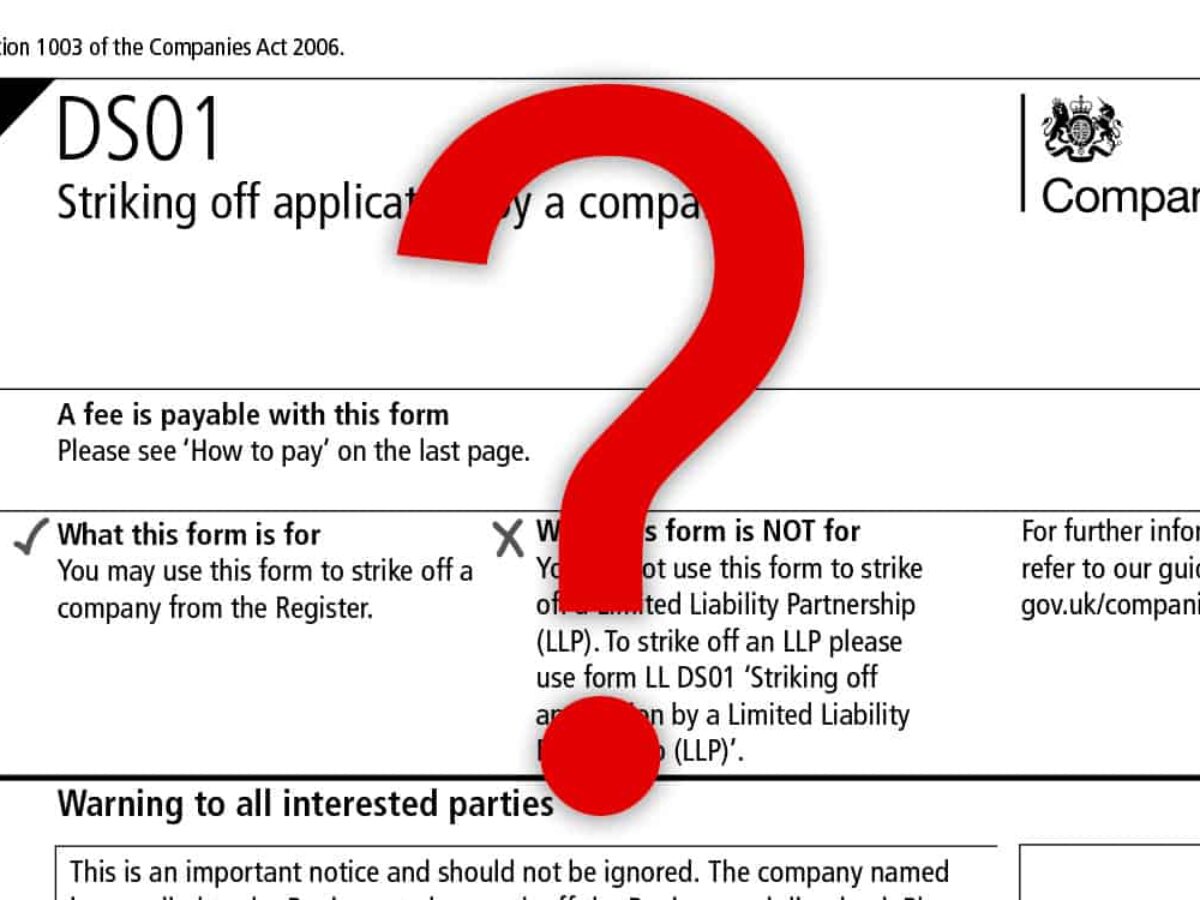Comprehensive Insights into Compulsory Strike Off Procedures
Comprehensive Insights into Compulsory Strike Off Procedures
Blog Article
A Comprehensive Guide to the Compulsory Strike Off Treatment in Corporate Administration
The required strike off procedure, a critical component in corporate administration, serves as a device to impose conformity and preserve the honesty of the service environment. As services evolve and conditions change, the demand to strike off a company might arise for different factors.
Reasons for Compulsory Strike Off
What conditions result in the need of a mandatory strike off in company governance? There are a number of key reasons that might prompt the initiation of a mandatory strike off treatment for a company. One typical circumstance is when a company stops working to abide with its statutory responsibilities, such as sending yearly returns or financial statements to the relevant authorities. Non-compliance with regulatory needs can elevate issues regarding the firm's procedures and financial health and wellness, bring about the choice to strike off the company from the register.
Additionally, companies that have stopped trading or are no much longer executing any type of service tasks might likewise deal with required strike off. This can be as a result of bankruptcy, mergings, or merely a choice to end up the business. In such situations, preserving the company on the register would serve no purpose and can possibly develop complication among stakeholders.
Eventually, the necessity of a mandatory strike off in corporate governance emerges when a firm is no more operating according to the law or has actually come to be inoperative, requiring its removal from the authorities documents.
Lawful Ramifications and Risks
Offered the conditions that trigger a mandatory strike off in corporate administration, it is important to understand the lawful ramifications and risks linked with such activities. When a company is struck off the main register, it stops to exist as a legal entity. This can have significant repercussions for directors, investors, and lenders. Directors might deal with individual obligation for company financial obligations incurred after the dissolution, subjecting their assets to possible seizure. Investors lose their financial investment in the company, and financial institutions may locate it challenging to recoup financial obligations owed to them.
Furthermore, there are lawful effects for individuals included in the monitoring of a company that has been by force struck off. They might be invalidated from acting as directors in the future, face penalties, and even jail time if misconduct or deceptive tasks are revealed. In addition, the reputational damage from a mandatory strike off can have enduring results on people and their capacity to engage in future business ventures. Comprehending these legal ramifications and threats is crucial for all stakeholders associated with the corporate governance process to navigate prospective mistakes and make sure conformity with the legislation.
Action In the Strike Off Refine
Starting the compulsory strike off procedure in business governance entails a series of prescribed actions described by regulatory authorities. The primary step typically calls for the business to send an official application or notification to the pertinent government firm or registrar signaling its intent to be struck off the official register. Ultimately, the business is often called for to work out any kind of exceptional responsibilities, financial obligations, or taxes to ensure conformity with governing needs.
As soon as the preliminary documents is sent and monetary obligations are met, the regulatory body will certainly release a notice in the main gazette or a comparable publication to notify stakeholders concerning the approaching strike off. This notification works as a final chance for any kind of interested parties to increase arguments or present valid factors why the firm should not be dissolved.
Adhering to the publication of the notification, the regulatory authority will certainly continue with the strike off procedure if no significant objections or barriers arise. The company will certainly after that be officially dissolved, and its name will be eliminated from the register, properly noting the conclusion of the mandatory strike off treatment in company administration.
Records Required for Strike Off
In conformity with regulatory standards, specific paperwork must be supplied to facilitate the strike off procedure in company governance. In addition, financial statements, such as the firm's newest equilibrium sheet, have to be included to make sure that all financial responsibilities have actually been settled before launching the strike off treatment. It is important to make certain that all the requisite paperwork is carefully ready and sent in accordance click for more with the prescribed guidelines to accelerate the strike off procedure effectively.
Post-Strike Off Responsibilities and Factors To Consider

Another crucial post-strike off factor to consider is the link capacity for the firm to be brought back to the register. The process for repair must be very carefully complied with to guarantee conformity with lawful requirements if there is a requirement to revitalize the company after strike off. Failure to resolve post-strike off obligations can cause possible lawful repercussions for investors and supervisors. For that reason, it is vital to diligently manage these responsibilities to keep excellent corporate governance methods.
Final Thought

There are several crucial reasons that might motivate the initiation of a compulsory strike off treatment for a business. Non-compliance with governing requirements can elevate concerns regarding the firm's operations and monetary health, leading to the decision to strike off the business from the register.
Additionally, business that have actually discontinued trading or are no longer bring out any kind of business activities might additionally face compulsory strike off. If there is a demand to revive the company after strike off, the process for reconstruction must be very carefully complied with to make certain compliance with legal requirements.In verdict, the obligatory strike off treatment in corporate governance serves as a required system to remove inoperative business from the register.
Report this page